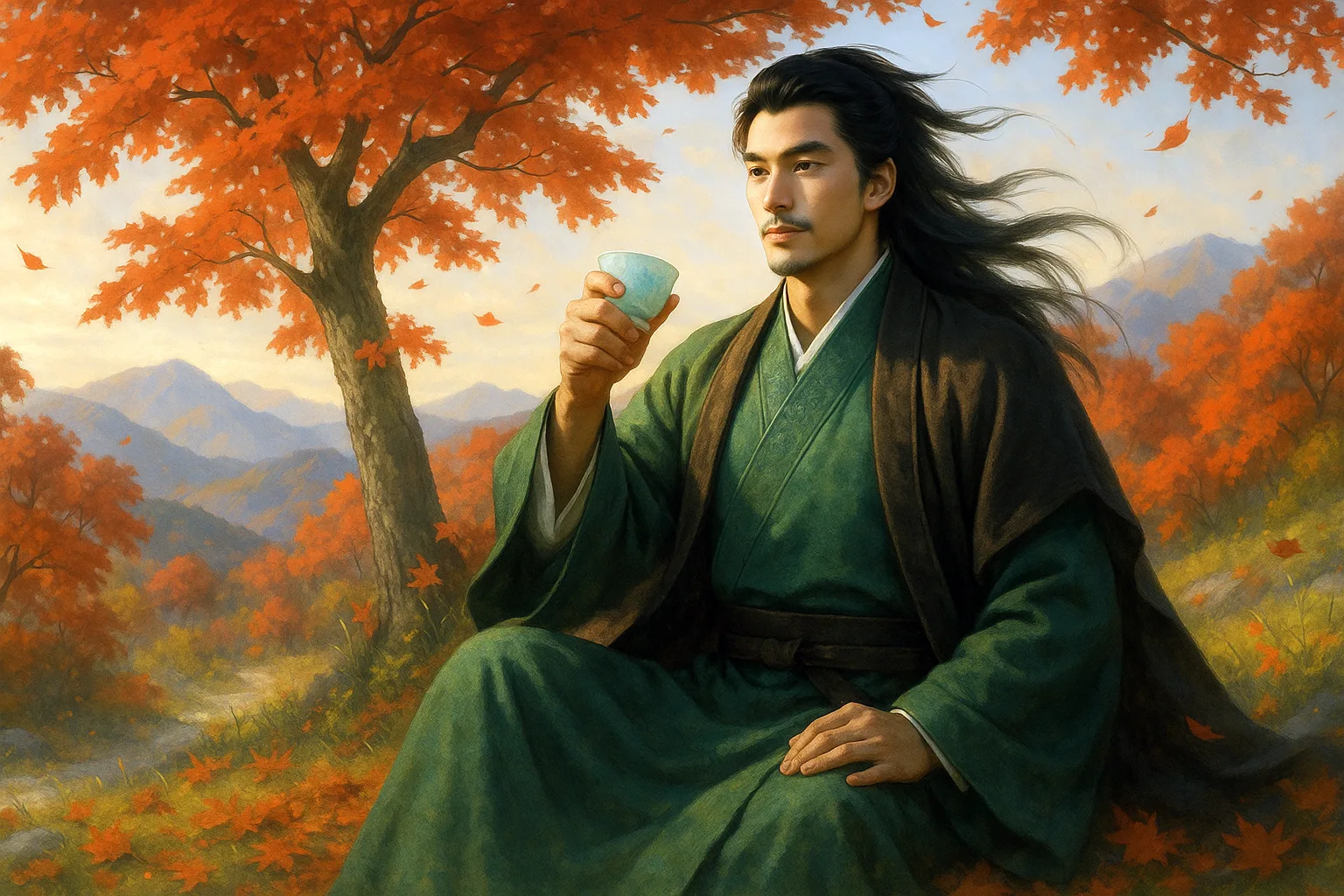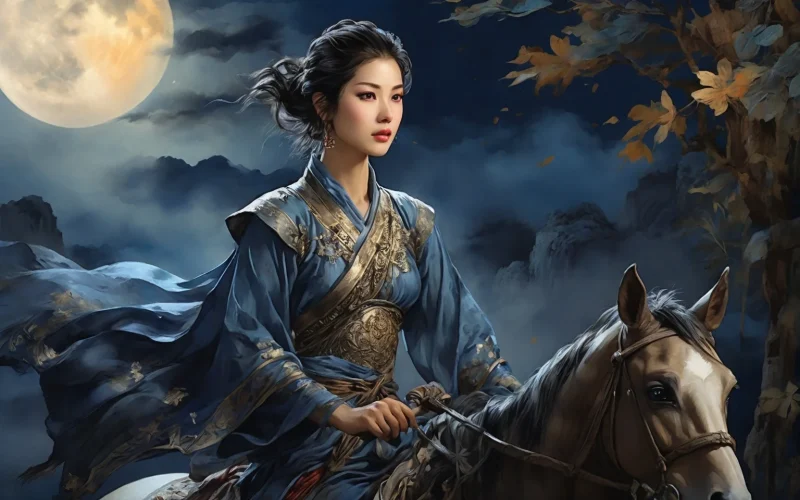She played the role of a man bending his bow,
But she dreamed of penciling her eyebrow.
How many times, homesick, wine cup in hand,
Would she bless the princess of her homeland?
Original Poem:
「题木兰庙」
杜牧
弯弓征战作男儿,梦里曾经与画眉。
几度思归还把酒,拂云堆上祝明妃。
Interpretation:
This poem was written by Du Mu while visiting Mulan Mountain, combining historical legends with personal emotional reflections. Mulan Mountain is linked with the folk tale of Mulan, and Du Mu uses this backdrop to express his admiration for Mulan's heroism as well as her feminine tenderness.
First Couplet:“弯弓征战作男儿,梦里曾经与画眉。”
(She bends her bow to fight, embodying the spirit of a man; yet in her dreams, she yearns for a quiet life with the thrush.)
Through these two lines, the poet reveals the dual nature of Mulan—her strong, outward warrior persona, and her inner longing for a peaceful, youthful life. In battle, despite being a woman, she exhibits the determination and resilience of a man, but deep down, she also desires the tranquility of a girl’s life. This emotional conflict adds depth to her character.
Second Couplet:“几度思归还把酒,拂云堆上祝明妃。”
(Several times she raised her cup in longing for home, yet also drank to wish well for Wang Zhaojun of the Han dynasty.)
This couplet connects Mulan’s homesick feelings with those of another historical female hero, Wang Zhaojun. Despite being in different historical circumstances, both women bear heavy responsibilities for their country and symbolize the historical burdens carried by women in a male-dominated society.
Writing Features:
Du Mu successfully portrays Mulan’s inner world through delicate psychological descriptions, vividly illustrating her as a hero. The poem uses a structure of “first suppression, then elevation,” beginning with Mulan’s external heroism, then shifting to her inner tenderness and longing for a peaceful life. The reference to Wang Zhaojun deepens the exploration of the female hero figure. The poem’s creative leap in structure is also distinctive, showcasing Du Mu’s unique perspective and emotional depth.
Overall Appreciation:
The poem centers on Mulan, depicting her bravery in battle alongside her inner tenderness, highlighting the complexity of a hero. The expression of emotions is layered, beginning with Mulan’s strength, moving to her gentleness, and finally comparing her with Wang Zhaojun to explore the unique position and responsibility of women in a male-dominated society. Through this delicate contrast and analogy, Du Mu not only creates a more multifaceted character but also provokes reflection on history, society, and gender roles.
Insights:
This poem, through the figure of Mulan, reveals the emotional and moral resonances shared between heroes and ordinary women. Du Mu shows us that although historical heroes are often masculinized, the responsibilities and inner struggles carried by female heroes are just as significant as those of men. The success of the poem lies in its ability to portray not only Mulan’s outward bravery but also the deep tenderness and inner conflict she experiences, reminding us that in celebrating heroic deeds, we should not overlook the pain and sacrifices behind them.
Poem translator:
Xu Yuan-chong (许渊冲)
About the poet:

Du Mu (杜牧), 803-853 AD, was a native of Xi'an, Shaanxi Province. Among the poets of the Late Tang Dynasty, he was one of those who had his own characteristics, and later people called Li Shangyin and Du Mu as "Little Li and Du". His poems are bright and colorful.











